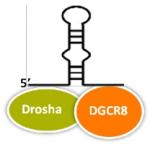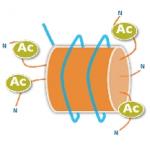Cultures of primary hepatocytes are an important tool for the safety assessment of new drug candidates in preclinical studies. Nevertheless, their routine use, particularly for long-term assays, is limited by the progressive deterioration of liver-specific features, both at the morphological and functional level.
This detrimental process, referred to as ‘dedifferentiation’, is initiated during the cell isolation procedure, when hepatocytes are forced to leave their quiescent in vivo state and re-enter the cell cycle. Proliferative priming of hepatocytes has, however, a deleterious effect on the expression of liver-specific genes, particularly genes encoding phase I and phase II biotransformation enzymes and liver-enriched transcription factors (LETFs).
Our team explores various molecular pathways and tools to counteract the dedifferentiation process, namely:

Discover how we improve primary hepatocytes-based in vitro liver models by investigating the microRNA-based regulatory circuits in primary hepatocytes.

Discover how we improve primary hepatocytes-based in vitro liver models by exploring epigenetic mechanisms of gene regulation, including histone acetylation and DNA methylation.

Discover how we develop a new hepatocellular cell line by immortalization of primary human hepatocytes.
